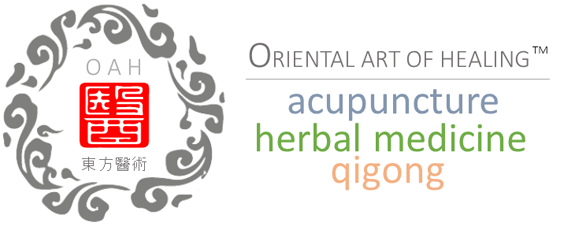Over 50 million adult Americans smoke. According to the Center for Disease Control (CDC), 70% of these individuals have reported the desire to quit. Smoking is a very difficult addiction to overcome, but there are many reasons to do so. Cigarettes have 4,000 chemicals, including 43 known carcinogenic compounds. The CDC reports tobacco to be the cause of 443,000 premature deaths each year. It is also associated with lung cancer, high blood pressure, chronic cough and many other illnesses.
How TCM can Help
Symptoms that commonly occur when an individual quits smoking include: irritability, cravings, anxiety and restlessness. Acupuncture treatments focus on these symptoms and also aids in relaxation and detoxification.
In addition to acupuncture, ear seeds (or pellets) are often taped to acupuncture points on the ear to help calm the mind. This also contributes to the elimination of cravings in between treatments by gently pressing on the pellet to stimulate the acupuncture point.
There are several Chinese herbs that can help control cravings or withdrawal symptoms. Chai Hu Long Gu Mu Li Wan can help relieve irritability and anxiety associated with detox. This herb can be helpful during stressful situations and can help prevent relapses. Herbal formulas are prescribed according to an individual’s constitution. Speak to a licensed acupuncturist before consuming any herbal products.
Keys to Success
Determination is key. As TCM can help lessen the desire to smoke and help control symptoms, effective treatment requires commitment to end the smoking habit.
At Home TipsFind a Support Person – The decision and process to quit smoking can be a challenging one and bring about many uncomfortable emotions. Ask someone close to you to act as a sounding board and provide support when neededCreate an Affirmation – Creating a positive statement of affirmation can help remind you of your goal, create that new image of health and remind you of your reasons to quitSet Boundaries – Request other smokers to refrain from lighting up around you. This includes loved ones; at least until you feel confident as a non-smokerStay Hydrated – Research shows that dehydration and dryness can cause cravings. Sip water throughout the dayDiet – Eat plenty of vegetables. Avoid caffeine and sugary foodsLifestyle – Exercise daily and practice deep breathing (e.g. meditation, yoga, qigong, etc)Manage Cravings – Plan ahead for what actions you will take when you have a craving. (example: take a walk, take deep breaths, call your support person, repeat your affirmation, take your herbs, etc)
"Acupuncture is successful with smoking cessation and has turned a growing number of cigarette smokers into permanent ex-smokers.... In fact, acupuncture is often a court mandated treatment for drug addicts because of it's ability to reduce cravings and alleviate withdrawal symptoms such as irritability, anxiety and difficulty concentrating." - Diane Joswick, L.A.c., MSOM
Related StudiesTraditional Medicine in the Treatment of Drug AddictionEffect of Acupuncture on Smoking Cessation or Reduction: An 8-month and 5-year Follow Up StudyA Randomized Controlled Trial of Auricular Acupuncture of Cocaine Dependence
References:
Avants SK, Margolin A, Holford TR, Kosten TR. A Randomized Controlled Trial of Auricular Acupuncture for Cocaine Dependence. Arch Intern Med. 2000;160(15):2305-2312. doi:10.1001/archinte.160.15.2305. http://jamanetwork.com/journals/jamainternalmedicine/fullarticle/746723?=gt. Accessed 18 Mar. 2017.
He, D, JI Mebb, and AT Hostmark. “Effect of Acupuncture on Smoking Cessation or Reduction: An 8-month and 5-year follow up study.” Preventive Medicine, vol. 33, no. 5, Nov., pp. 367-72, doi:10.1006/pmed.2001.0901, https://www.ncbi.nlm.nih.gov/pubmed/11676576. Accessed 18 Mar. 2017.
Joswick, Diane. “Quit Smoking with Acupuncture.” Acufinder.com, 2010, www.acufinder.com/Acupuncture+Information/Detail/Quit+Smoking+with+Acupuncture. Accessed 9 Mar. 2017.
Liu, Lin, Yanli Liu, Weili Zhu, Jie Shi, Yu Liu, Walter Ling and Thomas R. Kosten. “Traditional Medicine in the Treatment of Drug Addiction.” The American Journal of Drug and Alcohol Abuse, vol. 35, no. 1, July 2009, pp. 1-11, www.tandfonline.com/doi/abs/10.1080/00952990802455469. Accessed 18 Mar. 2017.


